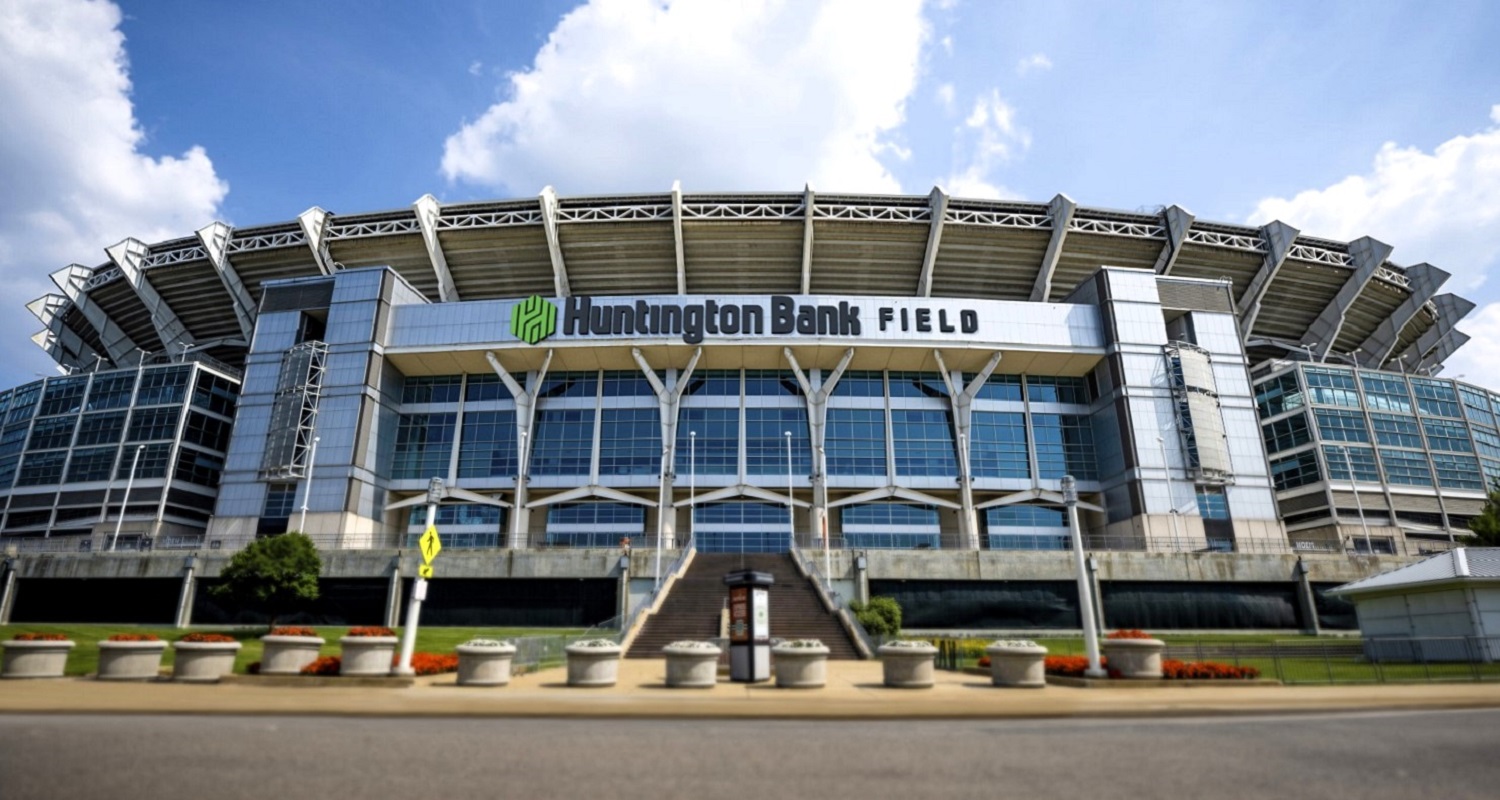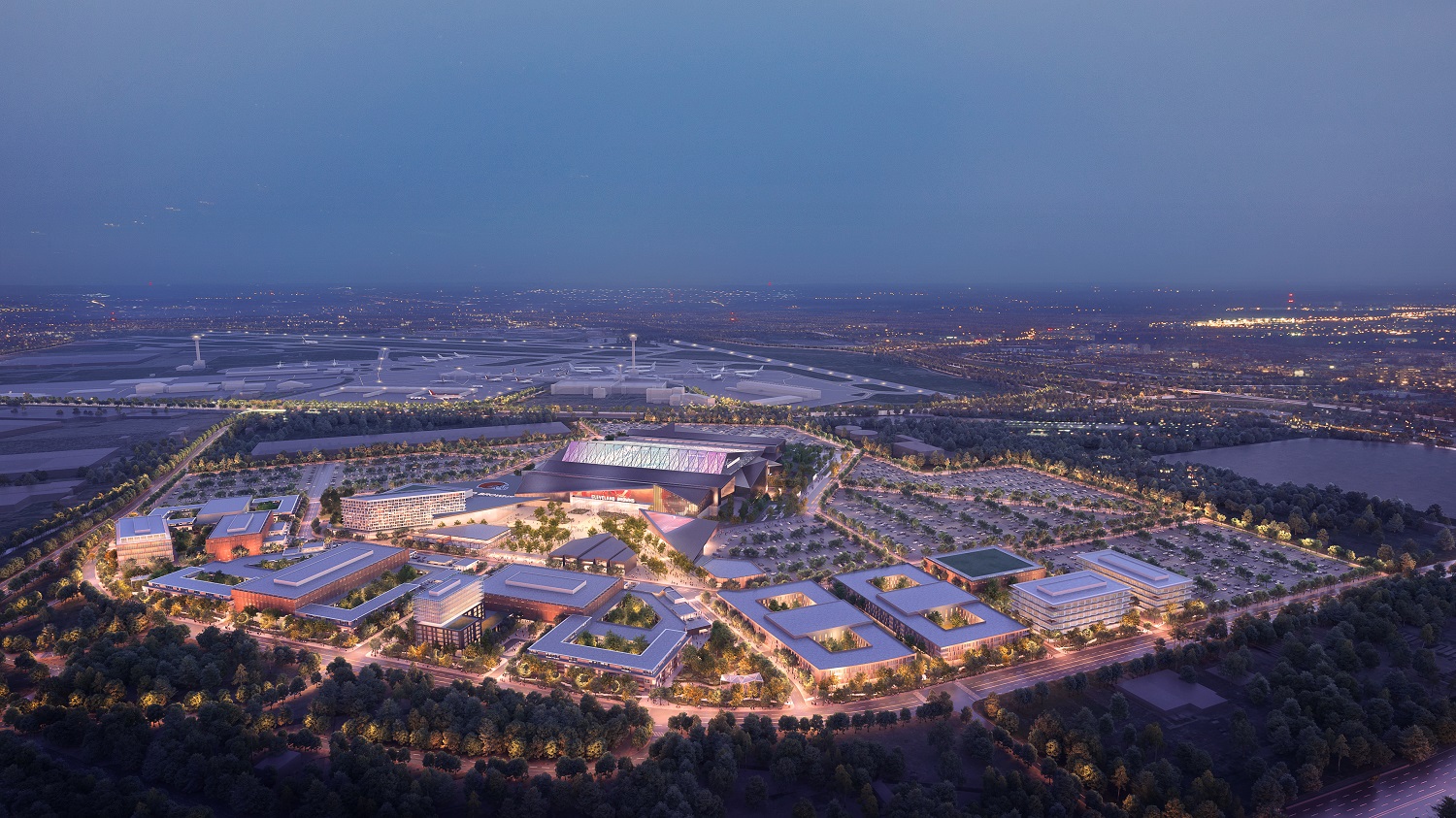City of Cleveland Is Set To Apply Modell Law Against Browns Move
by Ken Prendergast, NEOTrans | Dec. 20, 2024 | 9:38 PM

The following article was published as part of an exclusive content partnership with neo-trans.blog.
Some city officials had privately and recently told NEOtrans they were willing to deal with the Browns and its ownership, the Haslam Sports Group (HSG), on a stadium quid pro quo. While invoking the Modell Law doesn’t preclude that, things have taken a turn toward confrontation in the past week.
It worsened after a pre-emptive e-mail last week and a public opinion survey was posted online this week that critics in the media, government and among fans considered having questions that were leading, personal and political.
“It’s nothing new about the Modell Law,” Griffin told NEOtrans in a phone interview. “City Council voted (in October) to authorize the (mayoral) administration to use it if necessary to keep the team in Cleveland.”
While no legal action has yet been filed by the city to invoke Ohio’s Modell Law, it apparently is coming. Two sources who spoke to NEOtrans on the condition of anonymity said it is why the city hired law firm Jones Day this week and is a reason why the city has asked for and received a 30-day extension to answer HSG’s lawsuit in U.S. District Court claiming the Modell Law is unconstitutional.

“It is common to engage outside counsel on high-profile cases,” Cleveland Mayor Justin Bibb’s office said in a written statement without clarifying which legal cases. “The city wants to ensure the best possible representation for this.”
Peter John-Baptiste, chief communications officer for the Browns and HSG, said he had no comment on pending legal matters. HSG is owned by billionaire husband-and-wife Jimmy and Dee Haslam.
The Modell Law was passed by the state in 1996 after then-Browns owner Art Modell announced he was moving his football team to Baltimore. The Browns name, colors and history remained in Cleveland to adorn a new team added in 1999. The city built a new stadium on Downtown Cleveland’s lakefront for the team.
The Modell Law states that, if a professional sports team that uses a tax-supported facility stops playing most of its home games at that facility and instead plays them elsewhere, the owner of that team must enter into an agreement with the original host community to permit the team to play most of its home games elsewhere.
The original host community or a resident of that community would be given at least six months notice of an opportunity to buy the team. If there are no takers, then the team is allowed to leave.

Meanwhile, the Browns and HSG have removed a public opinion survey about a new stadium in suburban Brook Park after it was criticized in the media and by Ronayne. Baptiste said he was unsure why the survey, posted at SurveyMonkey earlier this week, was removed.
“This survey is currently closed. Please contact the author of this survey for further assistance,” said a noticed at the SurveyMonkey survey page. In an e-mail, Ronayne said he learned of the survey Friday morning, calling it a “push poll” because he felt it pushed those surveyed toward desired answers.
“Push polls like this are a common way to influence public opinion without providing the facts,” he said. “This poll used inflated economic impact data, fear tactics, and persuasive language to argue for an unprecedented sum of public money to be committed to a new stadium for the Cleveland Browns outside of the downtown core.”
Ronayne said he remains steadfast in his position regarding the stadium, believing that the Browns should continue to play their home games downtown. He said he considered it to be in the best interests of the community to prioritize reinvestment in existing public assets. Sources said Ronayne has rebuffed HSG’s overtures to communicate with him. Ronayne said that was false info coming from HSG.
HSG and the Browns have publicly shared renderings and plans for an enclosed $2.4 billion stadium and $1.2 billion in supportive development in suburban Brook Park. They also have created plans for a renovated Huntington Bank Field in downtown but declined to share them publicly, even though that stadium is city owned, citing the plans as proprietary.

“Cuyahoga County cannot afford to subsidize the creation of a second downtown with taxpayer dollars,” Ronayne added in his e-mail. “I continue to ask for the downtown stadium renovation plan to be shared publicly and for the Cleveland Browns to come back to the negotiating table with the city of Cleveland to build off of the billions of dollars of investments already made in the downtown core.”
Even though the survey was taken down, Ronayne vowed to fight for “what’s best for our residents and will not let underhanded tactics from anonymous sources influence my position,” he said in the e-mail.
Two questions in the HSG/Browns survey dealt specifically with Ronayne. The first asked “Do you approve or disapprove of the job that Chris Ronayne is doing as Cuyahoga County Executive? Strongly approve, somewhat approve, somewhat disapprove, strongly disapprove, unsure?”
The second asked “County Executive Chris Ronayne has said he will not support the Cleveland Browns building a domed stadium in Brook Park, and he will only support a renovation of the current stadium. Which comes closest to your opinion of what County Executive Chris Ronayne should do about the Cleveland Browns Stadium?”
The survey had these optional responses: “I agree with County Executive Chris Ronayne that the Browns should be renovating the current stadium; I think County Executive Chris Ronayne should be supportive of either option because he represents all of Cuyahoga County; Chris Ronayne should find a way to support the Brook Park domed stadium project because of the economic benefits it will bring to our region.”
For more updates about Cleveland, sign up for our Cleveland Magazine Daily newsletter, delivered to your inbox six times a week.
Cleveland Magazine is also available in print, publishing 12 times a year with immersive features, helpful guides and beautiful photography and design.

Ken Prendergast, NEOTrans
Ken Prendergast is a local professional journalist who loves and cares about Cleveland, its history and its development. He has worked as a journalist for more than three decades for publications such as NEOtrans, Sun Newspapers, Ohio Passenger Rail News, Passenger Transport, and others. He also provided consulting services to transportation agencies, real estate firms, port authorities and nonprofit organizations. He runs NEOtrans Blog covers the Greater Cleveland region’s economic, development, real estate, construction and transportation news since 2011. His content is published on Cleveland Magazine as part of an exclusive sharing agreement.
Trending
-
1
-
2
-
3
-
4
-
5










